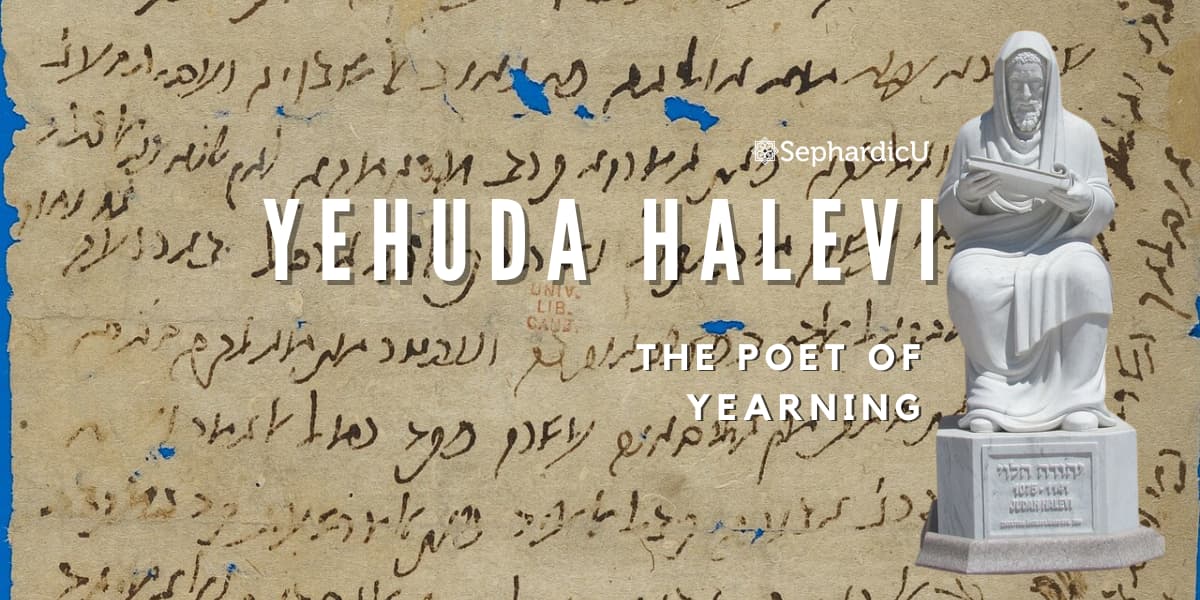Introduction
Yehuda Halevi, also known as Judah Halevi, stands as one of the greatest Hebrew poets and philosophers of medieval Spain. Born in Tudela in 1075, his enduring legacy continues to captivate readers with his profound insights and lyrical verse.
| Points | Details |
|---|---|
| AKA | Judah Halevi |
| Born | 1075 |
| Place of Birth | Tudela, Kingdom of Navarre |
| Died | 1141 |
| Place of Death | Jerusalem, Ayyubid Sultanate |
| Occupation(s) | Poet, Philosopher |
| Notable Works | “Sefer ha-Kuzari” (The Book of the Kuzari), Poetry |
Early Life and Education
Yehuda Halevi received a comprehensive education in Jewish religious texts, secular literature, and philosophy. Growing up in the culturally rich landscape of Islamic Spain, he was deeply influenced by the vibrant interplay of Jewish, Islamic, and Arabic cultures, which shaped his intellectual and artistic pursuits.
Rise to Prominence
Yehuda Halevi’s literary talents quickly gained him recognition throughout the Sephardic world. His poetry, characterized by its emotional intensity, spiritual longing, and deep reverence for the Land of Israel, resonated deeply with readers across generations, earning him widespread acclaim as the “poet of yearning.”
Notable Works
One of Yehuda Halevi’s most significant works is “Sefer ha-Kuzari” (The Book of the Kuzari), a philosophical treatise that explores the relationship between faith and reason. Written in the form of a dialogue between the king of the Khazars and a Jewish sage, the book addresses fundamental questions of religious belief and spiritual truth, offering a profound synthesis of Jewish theology and philosophy.
Influence and Legacy
Yehuda Halevi’s poetry and philosophy have had a lasting impact on Hebrew literature and Jewish thought. Revered for his eloquence, depth of thought, and spiritual sensitivity, he continues to be celebrated as a literary giant whose works transcend time and place. Halevi’s profound exploration of faith, identity, and longing for Zion has resonated with readers for centuries, inspiring generations of poets, scholars, and spiritual seekers.
Commemoration
In recognition of his enduring legacy, numerous literary and cultural organizations bear the name of Yehuda Halevi. His poetry is studied and celebrated in academic institutions and cultural events worldwide, ensuring that his contributions to Hebrew literature and philosophy remain alive and relevant in the modern era.
Conclusion
In conclusion, Yehuda Halevi stands as a towering figure in the annals of Hebrew poetry and philosophy. His lyrical verse and profound philosophical insights continue to captivate readers and inspire scholars, reaffirming his status as a poet philosopher whose words echo through the corridors of time. As we reflect on his life and works, let us cherish the enduring legacy of Yehuda Halevi and the timeless wisdom he bequeathed to humanity.








Ohr HaChaim Yomi – Emor